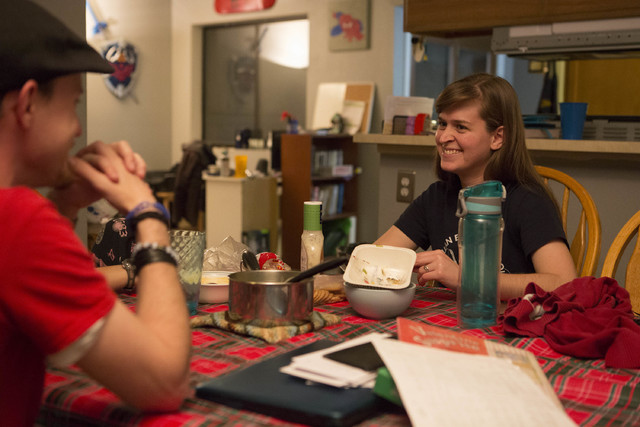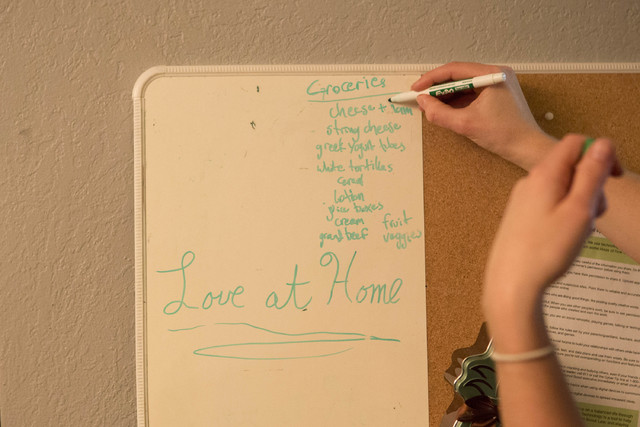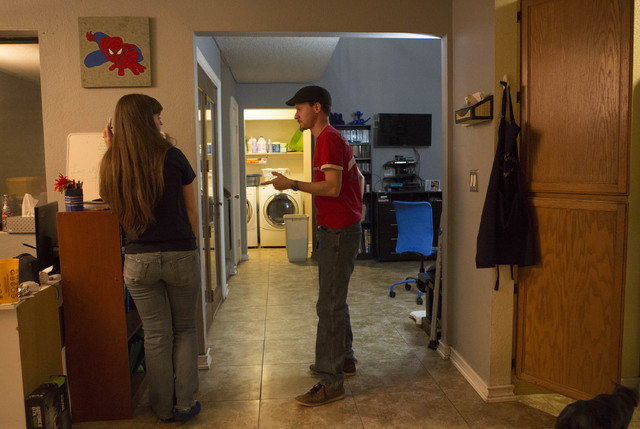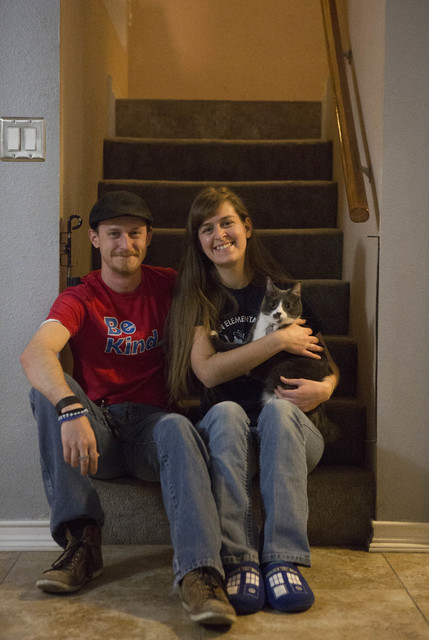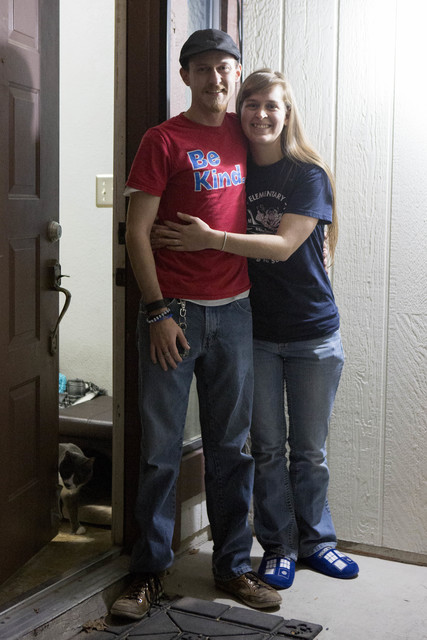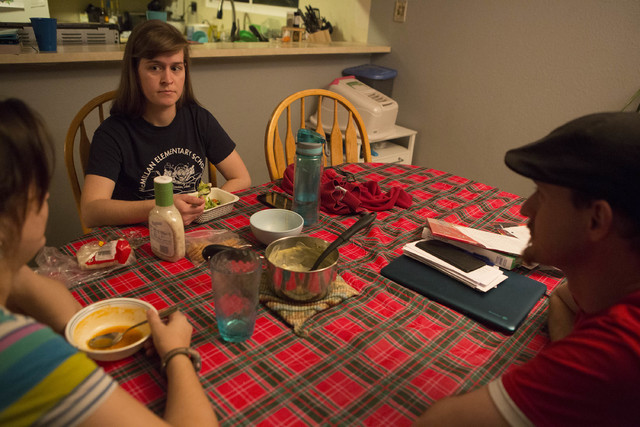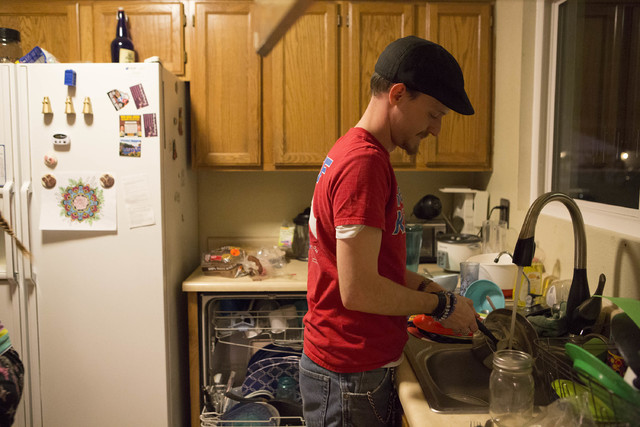Teachers put down roots in Nevada with homebuyer program
A 600-square-foot apartment quickly became a cramped space for Bridget Carilli, her husband and their cat.
But with combined income of $44,000 a year, Carilli estimated it would be another year or so of scrimping and saving before being able to afford a down payment on a home.
Carilli, 27, works as a special education teacher at McMillian Elementary School and her husband, John, 24, is employed with the city of Las Vegas’ Safekey initiative, which provides before- and after-school programs for children.
With the help of the Home is Possible for Teachers program, the Carillis closed on a $179,900 home in January. They are conveniently living next door to John Carilli’s parents.
“Our plan is to stay in this house for the rest of our lives,” Carilli, 27, said of their four-bedroom, two-and-a-half-bathroom home in northwest Las Vegas.
Carilli said she’s awestruck by the amount of space in the home, compared with the apartment she and John shared.
“It’s kind of daunting right now. Our backyard is just dirt so there’s a lot of work to be done,” she said. “But it’s nice to be able to know it’s mine.”
FILLING A NEED
The pilot program launched in December through the Nevada Housing Division. Similar programs already existed, including one for veterans and active military personnel.
“Teachers are key. We want to help them, we want to make sure they stay,” said Dwight Pace, the program’s supervisor.
The teacher program was in the works for more than a year, he said. The housing division and the governor’s office worked together on the initiative.
Qualified teachers receive up to $10,000 to use on down payment and closing costs. Teachers must be a licensed, full-time K-12 teacher with an income below $95,000 and a minimum credit score of 660. The home must be under $400,000 and no conventional loans can be used in combination with the program.
Teachers must live in the home for five years in order to qualify for the full $10,000.
Since a soft launch in December, 35 teachers have either closed on a home or are in the process of obtaining a mortgage, Pace said. In all, 300 teachers can take advantage of the money before organizers review the program and look at making any tweaks.
The state Department of Education wasn’t involved in creating the program, but spokesman Greg Bortolin said the department supports the initiative.
“Anything we can do to help teachers to get secure, solid housing, that’s very important with teacher retention,” he said.
Gov. Brian Sandoval said the new program complimented other ways the state supports teachers, citing the classroom supply reimbursement program, financial incentives for teachers who relocate and Teach Nevada scholarships.
“This is another example of the state taking advantage of existing resources and encouraging more quality education to teach, live and make Nevada their permanent home,” Sandoval said in a statement.
‘A LOT MORE INCENTIVE’
Carilli, a Sacramento native, plans to do that. She moved to Las Vegas about three years ago, when her mother mentioned Clark County needed more teachers.
At the time, enrollment in schools was shrinking in Sacramento and there weren’t as many jobs, she said. Before getting married, Carilli lived in an apartment with her sister in Las Vegas.
She and her husband started their home search in August, before the program launched. When their agent mentioned the new state program, they picked up the pace.
“We heard their were only 300 grants; we didn’t want those to run out before we got a chance,” Carilli said.
Alison Rachiell, the Realtor who worked with the couple, said the program should be a no-brainer. Rachiell, 52, is working with about eight other teachers to find homes.
“I’ve made it my mission to get teachers into homes this year,” she said. “A lot of teachers I’m working with are young and they want to raise their families in the homes they’re buying right now.”
Carilli has seen issues with teacher turnover, and said part of that is because teachers need to live somewhere they enjoy, and somewhere that feels permanent to become part of the community.
“Owning a home is a lot more incentive to stay than renting an apartment,” she said.
Contact Meghin Delaney at 702-383-0281 or mdelaney@reviewjournal.com. Follow @MeghinDelaney on Twitter.



